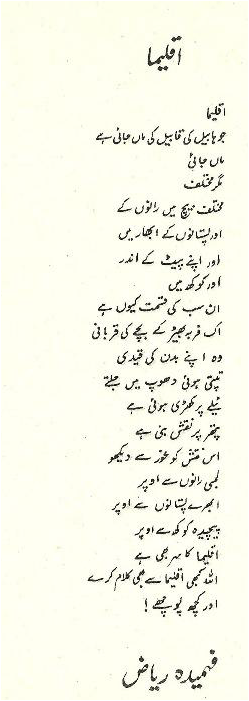This is to alert BrownPundit readers to a series I’ve begun on Zenpundit, my other punditry-posting place. It’s about Ioan Couliano’s argument in his book Eros and Magic in the Renaissance that the Renaissance art of Magic was essentially a matter of conjuring desire in the recipient by means of visual imagery, and that the Art has been revived with great success in the present day, in the form of commercial advertising.
Roughly speaking, then, Magic is the defendant, modernity-secularity-technology is the prosecution team — who don’t bother to call witnesses because, m’lord, it’s plain obvious that magical thinking is superstitious nonsense — and a bucket-load of TV commercials form the evidence presented by the defense.
**
But wait a minute — here’s magic:

**
Whether you’re secular or a devotee, that photographic image is magical in that a simple hand-gesture conjures up a flute. The flute isn’t there, objectively speaking — and yet there’s a flute, Krishna is quite obviously playing it, and indeed its mellifluous power of enchantment has drawn the lovely Radha to his side.
About Krishna’s flute — you may know far more than I, but at least I can point to Denise Levertov and Edward C Dimmock’s poem in Songs in Praise of Krishna — from the Bengali:
.
Radha is terrified on her way to the forest
O Madhava, how shall I tell you of my terror?
I could not describe my coming here
if I had a million tongues.
When I left my room and saw the darkness
I trembled:
I could not see the path,
there were snakes that writhed round my ankles!
I was alone, a woman; the night was so dark,
the forest so dense and gloomy,
and I had so far to go.
The rain was pouring down —
which path should I take?
My feet were muddy
and burning where thorns had scratched them.
But I had the hope of seeing you, none of it mattered,
and now my terror seems far away. . . .
When the sound of your flute reaches my ears
it compels me to leave my home, my friends,
it draws me into the dark toward you.
I no longer count the pain of coming here,
says Govinda-dasa
**
And what does all this have to do with advertising?
My response is that the Krishna and Radha in this photo were captured, and Krishna’s flute conjured, by the eye of a pro commercial guy:
JEREMY HUNTER began his career in advertising – as a television creative, working for Young and Rubicam, Leo Burnett, Ogilvy and Bates, along the way winning a number of international awards in Cannes, Venice, New York and Los Angeles. During this time he worked with some of Britain’s most iconic film directors – John Schlesinger, Ken Russell, Tony Scott, Dick Lester, Nic Roeg, Richard Loncraine as well as Oscar-winning Editor Jim Clark and photographer Terence Donovan.
That’s the resume of a contemporary magician.
**
In case you’re interested, the posts in my Magic and Commercials series on Zenpundit to date are:
Advertising series 01: Music
Eros, the Renaissance and advertising
Authentic, spiritual magic!
The magic of advertising or the commercialization of magic?
Here’s magic!
The magic of miniatures
I imagine there will eventually be about twenty posts in the series — but more and more evidence keeps turning up in favor of the defense.
Magic, court observers seem to think, is likely to be vindicated.


